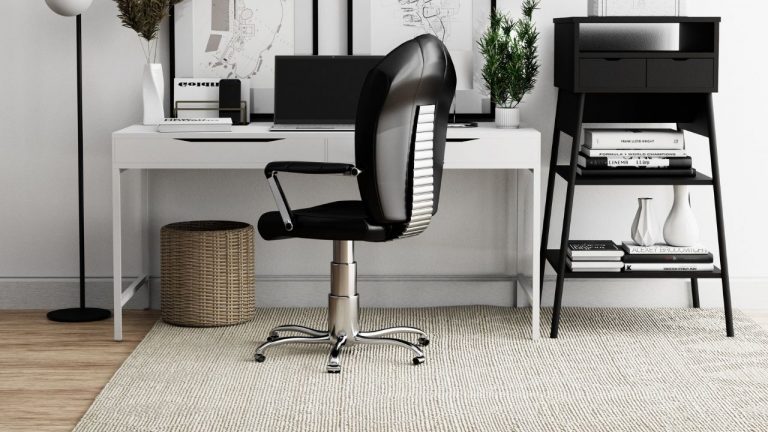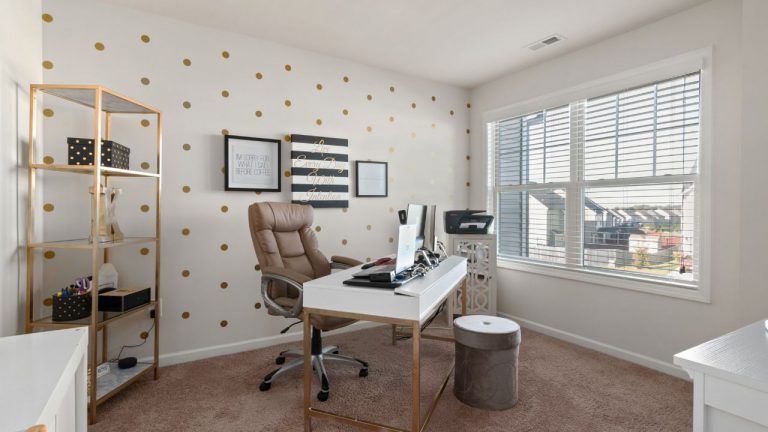Can You Write Off Home Office If You Aren’t Self-Employed?
Writing off your home office in the tax return files is one of the greatest perks of working from home. You can save a lot of money each year. But of course, there are certain conditions to be followed. One such requirement is to be self-employed. But, what about the people who use home offices but have employers? Can you write off the home office if you aren’t self-employed?
Since 2018, you are not allowed to receive a tax cut for the home office if you aren’t self-employed. And, the home office must be used regularly and specifically for job-related tasks. Only then, you can ask for a deduction from the authority.
But the story doesn’t end here. A lot of other factors dictate whether you can win a tax deduction and write off the home office or not. And, our purpose is to introduce you to each of these criteria, or requirements. Who knows you might be eligible!
Can You Write Off Home Office If You Aren’t Self-Employed?
Employees who are working from home were eligible for a tax deduction. It’s called “writing-off home office.” However, the Tax Cuts & Jobs Act has changed the law for remote workers. According to the 2017 announcement, only self-employed individuals are eligible for a such tax deduction.
Now, even if you work remotely for your boss, you can’t write off your working space.
What Does “Self-Employed” Mean?
We have used the term “self-employed” several times in this article. But everyone doesn’t view this term in the same light. So, it’s only fair to give you a clear perspective on what IRS means by “self-employed.”
Having A Freelancing Side Gig
Are you a freelancer? Superb! That makes you a self-employed person. Almost every freelancing gig has an individual contractor behind it. Such workers receive a fee after the completion of a project or task. It doesn’t include a monthly paycheck.
To give you a better hint, you could be a video editor, writer, web developer, graphics designer, and whatsoever. Now, it’s important to remember that you can only write off a home office if you have one in the first place. Because according to our knowledge there are multiple gigs that don’t require a separate office setup at all.
You could be working from your bedroom or living room. In that case, your living room won’t be counted as a home office and you definitely can’t write it off. If you can convince the auditors that your job requires a separate office set-up, you can ask for a deduction in tax.
Doing Administrative Work
You might not need the home office for the actual job. Suppose you are a plumber. You visit the client’s house after an appointment. In that case, you are not working from a home office. However, you would still be eligible to receive a tax cut as long as you are using a home office for administrative purposes.
By “administrative work,” IRS means taking care of your accounts, making appointments as well as other forms of paperwork.
Running A Business
You are self-employed if you run a start-up or small business. And, using your personal home as a warehouse or office enables you to ask for a tax cut. You have to prove how the specific room or area is contributing to your business.
It doesn’t even have to be a full-fledged room with four walls. You are eligible if a certain area of the room is designated for inventories and other office supplies.
Meeting Clients
Do you meet your clients in the home office? That’s possible if your job requires you to travel from one site to another. People wanting to hire you for a job have to visit the home office. If that’s the case with you, congrats! You fall under the category of “self-employed” by the IRS.
However, if you meet clients on behalf of your boss at your house, you won’t be counted as ‘self-employed.”
Attending Patients
Doctors/therapists/psychiatrists follow such a work pattern. You can renovate one part of the house as your work chamber and consult the patients there. It can even be a day-care. It’s quite common nowadays. Since you work as a babysitter and have sacrificed one portion of the house to establish a daycare, you fall under the “self-employed” category.

Requirements For A Home-Office Tax Deduction
Unfortunately, your request for a tax deduction might be turned down because of several factors. You see, every self-employed citizen needs to fulfill certain requirements if they are working from a home office.
Evidence Of Principal Use
Don’t be overwhelmed by the title. It only indicates that a worker must own a home office first and foremost. Secondly, the home office should be used regularly. Your most important office tasks like administration should be handled from this place.
Let’s give you an example for better clarification. Suppose, you have an office at a separate location. you regularly visit the office to get the job done. Plus, you have established a small office space in your home. You only use the home office when it’s too stressful at work. Sorry to say but it doesn’t align with the requirement “principal use.”
The home office must be used on a regular basis. Yes, you can still maintain outside offices. But as long as you are giving a certain amount of time each day to the home work-space, you are within the boundaries of the law.
Evidence Of Exclusive Use
Using the home office regularly is not enough. According to another requirement clause, you also have to use the home office exclusively. Here, “exclusive” refers to designating a whole area for work purposes only.
That means you can’t call your living room couch a home office. Even if you work from there, it’s not exclusively used for working. You use the couch for other purposes as well, right? The same goes for using a desk within your bedroom if it also serves as a decorative piece
So, the auditors will like to see a separate work area. It should have the necessary working equipment you require. Apart from showing evidence of regular and extensive use, the place also has to be exclusive.
What Disqualifies You For A Home-Office Tax Deduction?
Having difficulty deciding whether you fall into the category we just mentioned? Then, check out the job characteristics that disqualify you from the home-office tax advantage. Here we go!
First of all, do you work 9 to 5 for a company? Do you have to travel every morning to the office? If yes, then you are automatically out of the game.
Next, you might be working from home. But do you receive a monthly paycheck from the employer? To put it simply, does your employer send you a W-2 form along with the salary? If yes, then you are disqualified as well even though you work remotely.
The W-2 form indicates that half of your Medi-care and social security taxes are already paid by the company. So, you have less tax burden than a self-employed person.
Previously, it was allowed to gift tax cuts to an office employee who doesn’t have a choice when it comes to working remotely. That means the employer failed to provide physical office space. As a result, the workers are forced to support the organization by remote working.
But after the 2017 reform, this category has been abolished. Now, it doesn’t matter whether you have a home office due to an inconvenience or not. as long as you are receiving a paycheck, you are disqualified to write off the home office.

How Much Tax Exemption Can You Expect For A Home-Office?
You must be wondering how much money you can save ultimately. Well, it’s not that complicated. We have enlisted two methods below. It doesn’t matter which one you choose. Authority allows you to switch from one method to another each year if you want. We would suggest you try both methods while filing tax returns. Finally, stick with the one that saves you the most money.
Method 1: Price Per Square-Foot
The first method is the simplest one. It needs you to measure the area of the home office first. Suppose, it’s 300 sq ft. As per the current law, you can assign $5 to each sq ft of the home office. So, that brings us to $1500 for a 300 sq ft area. It can’t get easier, right?
However, it’s a disadvantage for homeowners with less living space. Imagine, it’s a two-bedroom apartment and you are dedicating one of the rooms to work purposes. You might get a limited tax deduction at the end of the year ($5 per sq ft). But the contribution or sacrifice is more than that.
In another sense, if person B owns a 3-bedroom flat, he/she is still going to receive the same tax cut as the previous one. Whereas person B contributes less of his living space for work than you.
Method 2: Percentage Of The House
The second method solves the problem we mentioned earlier. Here, the amount is not fixed at all. In fact, it varies from person to person. The Tax Cuts And Jobs Act allows homeowners to calculate the percentage of space they have sacrificed for a home office. Suppose, it’s 10%. Then, you get a 10% discount on mortgages, rent, and other property-related taxes.
Also, you get to enjoy up to 100% tax exemption for certain expenses. For example, you have painted or renovated the home office. The expenses are tax-free. Moreover, if you entertain your clients with food and transportation services, the expenses would be exempted as well. But you have to collect the receipts of restaurant bills and submit them with your tax return files.
The major benefit of this method is that you get an exemption relative to your compromising level.

What If You Are Self-Employed Only For A While?
We assume one person is self-employed for an entire year while filing the tax returns. But that’s not true for everyone. Some people work as a single contractor for the most part of the year. However, they might switch to a 9-5 job right before the year ends. Well, technically they are not self-employed anymore. But it sounds unfair to let go of these tax advantages.
No need to worry. IRS declares that you are entitled to receive tax cuts for the period you were self-employed. In that case, the calculation will change slightly. For example, your previous home office was 300 sq ft and you used it for 8 months straight before moving to a new job.
According to the simplified method, you would have been entitled to a $1500 tax deduction if you didn’t change the job. But now, you would only receive $1000.
The same formula applies to the second method as well. Your tax payment for mortgage, rent, and so on will be discounted for the first 8 months. You will not receive any tax benefit for the rest 4 months.
Is It Really Worth Writing Off Your Home Office?
There’s no need to be disheartened if you don’t fulfill the criteria. There are certain complications around writing off your home office. The first one is, the “depreciation dilemma.” You see, whenever you file tax returns, you are enjoying a tax cut. That’s because you are using a certain part of the house as a business property.
That’s why when it’s time to sell the house, your home office will be accounted as a business/profit-making asset. The average rate of tax on the profit after selling a tax is around 10 to 15%. However, the rate goes up to 25% for business properties. You see, that’s a major disadvantage for the home-office owner.
Moreover, you have to show evidence to claim the tax cut you deserve. It requires collecting receipts, and bills, facing the auditor, and so on. It might be a hassle for you in the end. That doesn’t mean we are discouraging you to get the tax advantage. You should definitely take it if you are eligible. However, you should feel bad if you can’t pass the eligibility test.
Before You Go!
It must be clear by now that you should establish a small home office in your home. If you are a self-employed person, it would be the best way to save some bucks. But how do you do it? And, more important, what is the ideal budget for a small/large/medium home office? We have an interesting explanation on this topic.
Follow our article on how much money you would need for a home office.



![How Much Space Around An Office Desk? [Comfortable Layout]](https://homethereby.com/wp-content/uploads/2022/02/How-Much-Space-Around-An-Office-Desk-768x432.png)


![How Small Can A Home Office Be? [Real-Life Examples]](https://homethereby.com/wp-content/uploads/2023/01/home-office-shed-768x432.jpg)
![Setting Up A Home Office Desk Against A Window [Beginners Guide]](https://homethereby.com/wp-content/uploads/2022/01/Setting-Up-A-Home-Office-Desk-Against-A-Window-768x432.jpg)